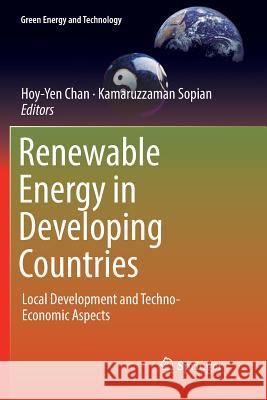Renewable Energy in Developing Countries: Local Development and Techno-Economic Aspects » książka
topmenu
Renewable Energy in Developing Countries: Local Development and Techno-Economic Aspects
ISBN-13: 9783030078645 / Angielski / Miękka / 2019 / 189 str.
Kategorie:
Kategorie BISAC:
Wydawca:
Springer
Seria wydawnicza:
Język:
Angielski
ISBN-13:
9783030078645
Rok wydania:
2019
Dostępne języki:
Numer serii:
000355820
Ilość stron:
189
Waga:
0.28 kg
Wymiary:
23.39 x 15.6 x 1.07
Oprawa:
Miękka
Dodatkowe informacje:
Wydanie ilustrowane











